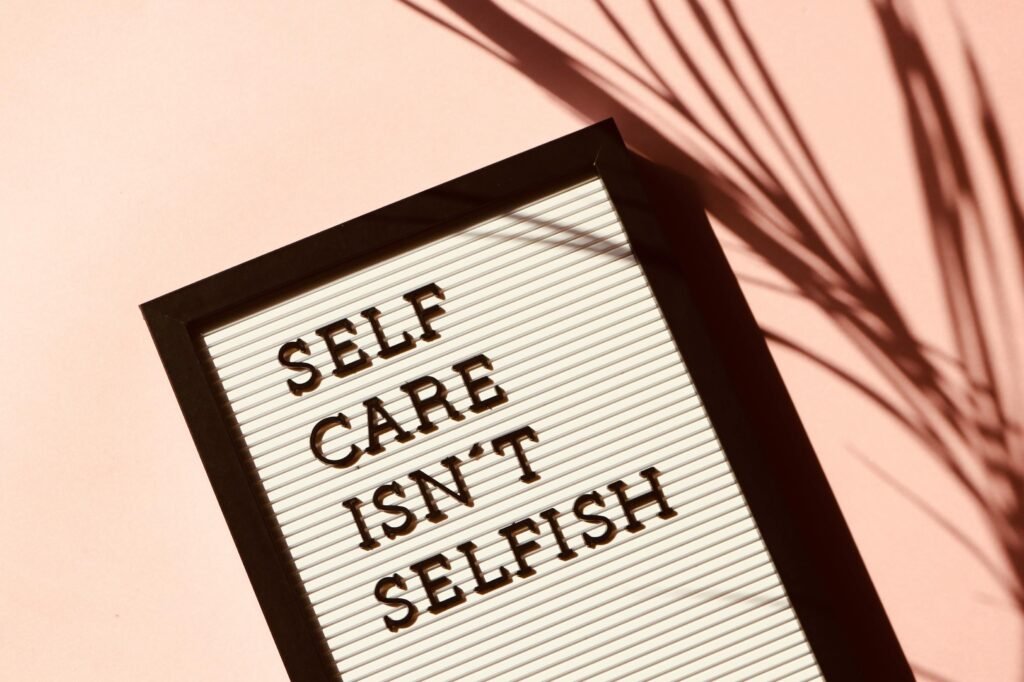
Intro
As adult children of emotionally immature parents, navigating the complexities of our past experiences can be a challenging and painful journey.
It’s important to acknowledge the impact that our upbringing has had on our emotional well-being and to recognize that healing is possible.
In this guide, we will explore the steps you can take to understand and heal from the effects of having distant, rejecting, or self-involved parents.
Acknowledging the Pain of Your Past Experiences

Embarking on the journey to heal from the emotional scars left by distant, rejecting, or self-involved parents requires courage and a willingness to face the discomfort of our past.
The initial, and often most challenging, step involves acknowledging the pain of your past experiences. It’s a process that might stir up a whirlwind of emotions you’ve possibly spent years trying to avoid or minimize.
Yet, this acknowledgment is a profound act of self-care and bravery.
For many adult children of emotionally immature parents, recognizing the depth of their pain can be an unsettling experience. You might uncover feelings of abandonment, neglect, or the sense of never being fully understood or appreciated for who you are.
These feelings, while incredibly painful, are valid and important. They are the first notes in the symphony of your healing journey.
It is crucial during this time to remember that your feelings are not a reflection of weakness but rather a testament to your strength.
The fact that you’re willing to confront these emotions head-on speaks volumes about your resilience and determination to forge a happier, healthier path forward.
This step is not about assigning blame or dwelling in the past, but rather about validating your own experiences and emotions. It’s about giving yourself permission to grieve the childhood you deserved but did not receive.
This grieving process is not linear and may ebb and flow in intensity, but each step forward is a move towards healing.
Embrace the discomfort knowing it’s a crucial part of your growth. It’s akin to tending to a wound; initially, it might be painful and raw, but with time, care, and attention, healing begins.
Through acknowledging your pain, you’re not only honoring your past but also paving the way for a future where you can experience emotional freedom and fulfillment.
In doing so, you start to dismantle the power these past experiences hold over you, step by step. Remember, healing starts with acknowledgment, and through this, you’re already on your way to reclaiming your emotional well-being.
The Importance of Self-Compassion on Your Healing Journey

In the tender voyage of healing from the wounds inflicted by emotionally immature parents, self-compassion emerges not just as a balm, but as a beacon guiding us towards wholeness.
It’s an essential, yet often overlooked, aspect of our healing toolkit. Imagine self-compassion as the gentle, yet powerful, friend who takes your hand when you stumble, reminding you that every misstep is merely a part of learning to walk away from the shadows of your past towards a more illuminated path of self-awareness and acceptance.
Cultivating self-compassion means learning to quiet the inner critic that echoes the dismissive or critical voices of our parents.
It involves replacing those harsh judgements with a narrative that’s kinder and more forgiving. It’s about recognizing that the challenges we face in shedding the legacy of our upbringing aren’t failures but are, in fact, markers of our bravery.
Every effort to move beyond the pain is a testament to our resilience and our deep-seated desire for a more authentic and loving relationship with ourselves.
Practicing self-compassion means allowing yourself the space to breathe and heal at your own pace, without pressure or judgment. It’s understanding that healing is not a linear process, but a journey with its own rhythm and timing.
In moments of doubt or self-criticism, pause and ask yourself, “What would I say to a friend in this situation?” Often, we find that the compassion we can so freely extend to others is a wellspring we can, and should, direct towards ourselves.
In this nurturing of self-compassion, we also learn to forgive ourselves for the times we’ve acted out of unhealed pain, acknowledging these instances not with self-reproach but with empathy for our own suffering.
This self-forgiveness paves the way for profound self-discovery and transformation, empowering us to redefine our sense of self outside of our parental narratives.
Self-compassion is the soulful embrace that reassures us of our worthiness, even when we struggle to perceive it ourselves.
It is the silent affirmation that we are not defined by our past or the actions of our emotionally immature parents but by the strength of our character and our capacity for self-renewal.
In the art of self-compassion, we find not just healing, but the very essence of our humanity and our boundless potential for growth and happiness.
Setting Boundaries with Emotionally Immature Parents

Navigating the delicate process of setting boundaries with emotionally immature parents can be akin to walking a tightrope.
It requires a balance between honoring your own emotional needs and managing the intricate dynamics that define your relationship with your parents.
It’s a step that underscores the necessity of self-care and underscores your right to emotional health and safety.
In undertaking this journey, it’s vital to approach boundary-setting with clarity and kindness—both towards yourself and your parents. Start by identifying the specific behaviors that you find harmful or draining.
These can range from unrequested advice to more overt criticisms or dismissals of your feelings. Articulating these boundaries clearly and assertively to your parents is key, though it may not always be received with understanding or acceptance.
Remember, the goal of setting these boundaries is not to change your parents’ behavior—that may be beyond your control—but to protect your emotional well-being.
It involves making tough decisions about the amount of emotional space you can healthily allocate to your parents while safeguarding your inner peace.
This may include limiting the frequency of interactions, choosing not to engage in certain topics, or in more extreme cases, contemplating physical distance.
It’s important to reinforce these boundaries with consistent actions, and to prepare yourself emotionally for any range of responses you might encounter.
This is where your emotional support system becomes invaluable, offering a sanctuary of understanding and validation as you navigate these complex emotional waters.
Throughout this process, it’s crucial to be gentle with yourself. Setting boundaries with the very individuals who raised you is no small feat.
It’s a testament to your strength, your commitment to your own healing, and your journey towards a healthier, more autonomous life.
While it may stir a mix of emotions, from guilt to relief, remember that you are doing this not just for the person you are now, but also for the child within who deserved to be heard, respected, and protected.
Building Your Emotional Support System

Creating a nurturing emotional support system is an essential step for adult children of emotionally immature parents.
It involves intentionally surrounding yourself with individuals who offer empathy, understanding, and genuine support—those who can hold space for you as you journey through your healing process.
These connections, whether they’re with friends, family members who understand your plight, or mental health professionals, serve as a lifeline, reminding you that you are not navigating this path alone.
In cultivating your support system, seek out people who encourage open communication, listen without judgment, and offer the kind of validation that was perhaps missing in your interactions with your parents.
These relationships can provide a mirror reflecting your inherent worth and resilience, a perspective that is often clouded by the legacy of emotional immaturity you’ve experienced.
Remember, the quality of these connections matters more than quantity. A few close, meaningful relationships can offer more solace and strength than numerous superficial ones.
Additionally, consider exploring support groups, either in person or online, where you can connect with others who share similar backgrounds. These groups can be incredibly validating, offering insights and strategies that resonate with your experiences.
Engaging with a therapist or counselor who specializes in family dynamics or childhood trauma can also be an integral part of your support network.
Professional guidance can help you navigate the complex emotions and challenges that arise, offering strategies to cope and grow beyond your upbringing.
As you build and lean on your emotional support system, you’re not only fostering connections that can help you heal and grow—you’re also rewriting the narrative of your life to include a community of chosen family and allies who affirm and celebrate the person you are becoming.
Engaging in Self-Reflection to Understand Your Needs

Engaging in self-reflection is a pivotal step on the path to healing for adult children of emotionally immature parents.
This introspective journey invites us to delve deeply into our inner world, illuminating our needs, desires, and the boundaries that are essential for our well-being.
It’s an opportunity to pause and listen intently to our own voices, often drowned out by the cacophony of our past.
This process of self-discovery helps us untangle the web of our upbringing, shedding light on how our experiences have sculpted our beliefs, behaviors, and reactions.
It’s about asking ourselves the hard questions: What patterns have I inherited from my parents that no longer serve me? How do my past experiences influence my current relationships and self-perception? What do I need to feel safe, loved, and valued?
By fostering a habit of self-reflection, we gradually learn to distinguish our authentic selves from the roles we were conditioned to play. We start to identify what truly brings us joy, peace, and fulfillment, beyond the expectations imposed upon us.
It’s a process of reclaiming our power, asserting our right to define ourselves on our own terms.
This journey is not about rushing to find answers but allowing ourselves the space and grace to explore our inner landscape.
With each insight, we edge closer to making choices that resonate with our true selves, laying the foundation for a life that reflects our deepest values and desires.
Through self-reflection, we embark on a transformative path of self-awareness, empowering ourselves to create a future where our needs are not just recognized but honored and fulfilled.
Learning New Patterns of Emotional Behavior

Embarking on the path to learn new patterns of emotional behavior is akin to planting a garden of self-healing and growth. For adult children of emotionally immature parents, this endeavor is both necessary and life-changing.
It involves gently uprooting the weeds of old habits and planting seeds for healthier emotional responses and relationships.
The process begins with understanding and accepting your emotions as they are. This means allowing yourself to feel without judgment or immediate reaction.
It’s about acknowledging your feelings with kindness and curiosity, rather than the criticism or neglect you may have encountered in your upbringing.
This step is vital in creating a safe internal space where new patterns of emotional behavior can flourish. Next, cultivate the practice of expressing your emotions in constructive ways.
This could be through communication techniques that foster understanding and connection, such as using “I feel” statements that focus on your experience rather than placing blame.
It might also involve finding creative outlets for your emotions, such as journaling, art, or music, which can provide both a release and a way to explore your feelings more deeply.
Additionally, learning to set and respect healthy boundaries is an integral part of developing new emotional patterns. Boundaries help protect your emotional garden, allowing it to thrive.
They enable you to interact with others from a place of self-respect and assertiveness, rather than fear or compliance.
This journey of learning and growth is not about perfection but progress. Each step forward, no matter how small, is a move towards a life where your emotional well-being is nurtured and valued.
Remember, the goal is not to erase the past but to build a present and future where you can live with authenticity, resilience, and emotional health.
The Role of Professional Help in Your Healing Journey

Embarking on the journey to heal from the wounds left by emotionally immature parents is a profound act of courage.
While self-reflection, establishing boundaries, and building supportive relationships are integral steps on this path, the value of professional help cannot be overstated.
Engaging with a therapist or counselor who specializes in navigating the complexities of family dynamics and childhood trauma offers a unique and empowering space for growth and healing.
Therapy provides a compassionate and non-judgmental environment where you can explore the depths of your experiences with the guidance of someone who understands the intricate process of healing from emotional wounds.
A professional can help illuminate patterns and behaviors that are often too close for us to see clearly on our own, offering insights that can accelerate our journey toward healing.
Moreover, therapy offers a structured approach to tackling the multifaceted challenges of overcoming the legacy of emotionally immature parents.
Through therapeutic techniques, you can learn new, healthier ways of relating to yourself and others, manage emotional pain, and develop resilience in the face of adversity.
It’s about equipping yourself with the tools you need to not just survive but thrive, despite the difficulties of your upbringing.
In seeking professional help, you are making a powerful declaration of self-worth and a commitment to your own well-being.
It’s an acknowledgment that you are not alone in this journey and that support is available to help you navigate the complexities of healing. Let this step be a testament to your strength and a beacon of hope on your path to emotional freedom and fulfillment.
Celebrating Your Progress and Recognizing Your Strength

In this healing journey from the shadows of emotionally immature parents, every step forward, no matter how small, is a testament to your incredible resilience and bravery.
It’s essential to pause, reflect, and celebrate the milestones you’ve achieved along the way.
This celebration is not just about acknowledging the distance covered but about honoring the strength and determination that propelled you forward, even on the toughest days.
Your progress, whether it’s setting boundaries, cultivating self-compassion, or learning to express your emotions healthily, is a significant achievement.
These steps are building blocks towards a life where you feel validated, understood, and loved for who you truly are. They mark the shedding of old patterns and the embrace of a new, healthier way of living.
Let’s take a moment to appreciate the courage it took to embark on this path. It required you to dive deep into your vulnerabilities, challenge long-held beliefs, and sometimes stand alone in your truth.
That’s no small feat. It’s a display of strength that deserves recognition and celebration.
Remember, every moment of self-discovery, every instance of choosing self-care over familiar self-neglect, is a victory.
These victories, big and small, are paving the way for a brighter, more fulfilling future. They are proof of your commitment to not only healing but thriving.
So, as you continue on this path, carry with you the knowledge that you are strong, capable, and deserving of all the love and happiness this world has to offer.
Celebrate your progress, for it is your beacon of hope and a clear sign of your unwavering strength.
